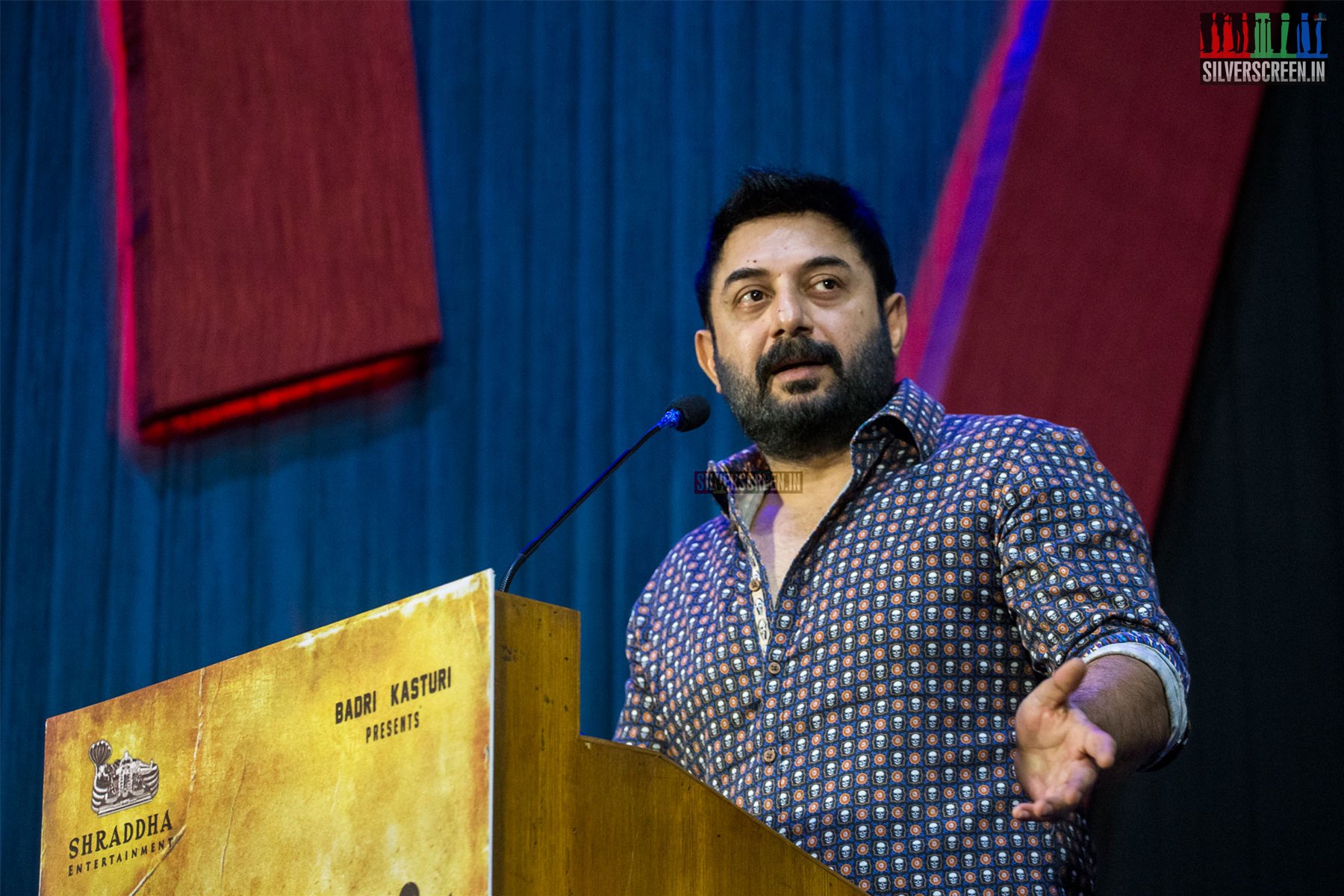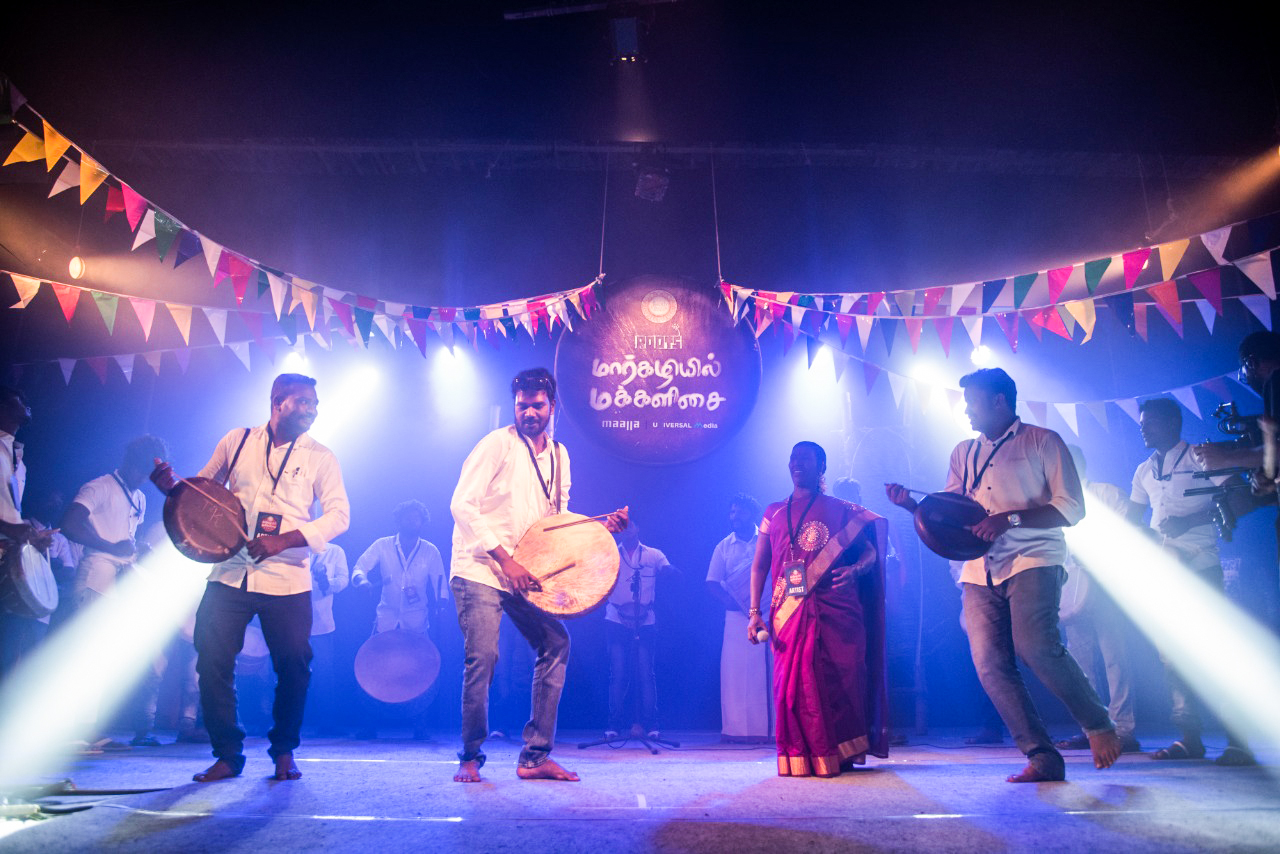Jio MAMI Mumbai Film Festival day 3. World cinema and Indian cinema comes to the same platform at the 17th edition of the Mumbai Film Festival. Screenings held in five locations in Mumbai. 444 films screened over 7 days. We bring you daily reports by Aditya Shrikrishna, writing live from Mumbai.
Between Andhra Pradesh and Tamil Nadu, Vetrimaran walks a magnificent and heart-wrenching distance with Visaranai. Straightaway, we’re up against this not so insignificant, all-too Indian problem of language barriers. Pandi and his friends, originally from Tamil Nadu, work in Andhra Pradesh. They bribe the watchman so they can spend their nights at a local park. Easy pickings for the Andhra police. They’re beaten and battered to make them plead guilty to a crime they did not commit. In court, to hear their plea, the judge needs a translator. When a fellow constable offers to do the job, the judge instantly retort, “You think I’ll believe you?”. He asks them to fetch a Tamil Nadu police officer who is serendipitously in court for a different case. The Tamil Nadu officer can’t translate into Telugu. English will do.
Four innocent men are arrested. The first half deals with the brutal treatment meted out to them in the lockup. It’s based almost entirely on M Chandra Kumar’s Lock Up, a novelised account about his personal experience in prison. The second half, says Vetri Maran, was also inspired by actual cases. You’d think that Visaranai would have a jumpy, incoherent feel to it. But it’s seamless.
The story unfolds for the audience at the exact pace it unfolds for the four protagonists. We’re as clueless as they are. And that’s why, when they are beaten and tortured, our reception is razor sharp.
There is a subplot that moves mysteriously in the first half and culminates in chilling fashion at the end of the film. But this thrill has already become familiar, because the second half is shot through with it. Vetrimaran’s filmmaking is a marvel here. The Guntur lockup reeked of filth and urine. Walls yellow with dust and nicotine. And then they’re told to clean it. In stark contrast, the police station in Chennai is swanky, white, and newly painted. And then they’re told to clean it. Because Ayudha Poojai is around the corner. With details like these, Vetrimaran delivers a powerful blow in the second half.
The nearly-flawless Aadukalam is a hard act to follow. But, Visaranai is hair-raising. The real problem for the theatrical release will be the censors. Vetrimaran admits that a lot may need to be cut down to pass that scrutiny, including deletions in the background score. Visaaranai is a terrific effort from not just Vetrimaran, but also Dinesh and Samuthirakani. The latter is easily one of the best actors in the country today.
*****
A festival at the headquarters of Bollywood, and a documentary on a South cinema superstar. Even if it is the superstar, this is a rare sight. It’s even rarer to see a documentary made not on him, but on his fans. If Rajinikanth is a highly visible phenomenon, his fans are an altogether perplexing one. Wondrous indeed that Rinku Kalsy made For the Love of a Man, a documentary on Rajinikanth fans.
When asked what her first Rajini film was, she said Geraftaar. That’s how much of an outsider she used to be, to the Rajinikanth phenomenon. She talks about her trips to Chennai. How she, too, became a part of the throng of electrified masses at the first shows of a Rajini film.
MSS Pandian’s The Image Trap analyses the way MG Ramachandran (MGR), the former Chief Minister of Tamil Nadu, underwent a calculated image makeover through his films, songs, and characters. At the beginning of For the Love of a Man, we have a similarly probing analysis of how Rajini broke stereotypes and refashioned his image. Kalsy, unlike Pandian, doesn’t dwell on this for too long. Perhaps the constraints of film-making propelled her to drop what would have been a much-needed and searching analysis.
Recommended
The chapters here are different: a gangster turned sweet-shop owner manages fan clubs with his hard-earned money (in a nice touch, we listen to his family disapproving of this); two brothers who run a business claim that Rajini was the guiding light through the metaphorical tunnel, after they lost their parents early in life; mimicry artiste Kamal Anand proudly claims to have originally been a Kamal fan (for his dancing), before Rajini’s mannerisms and love won him over. So much so that he earns a living out of doing stage shows, performing as Rajini.
I wonder who the documentary’s target audience is. For south Indians who have lived through the 80s and 90s, this is simply confirmation, and a peek into the lives of a handful of hardcore fans. You find yourself nodding at everything.
For others, will this movie shed any light on the extravaganza of Rajini fandom? It’s hard to tell. One longs a deeper, more analytical film. But For the Love of a Man is an appetite-whetting start.
*****
Image Courtesy: Jio MAMI Film Festival



